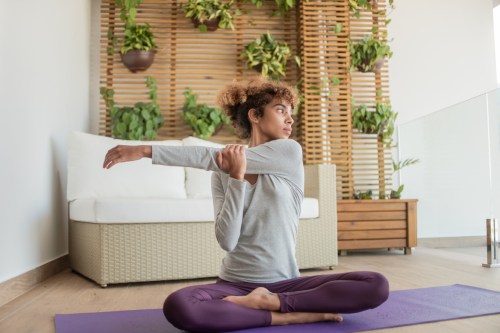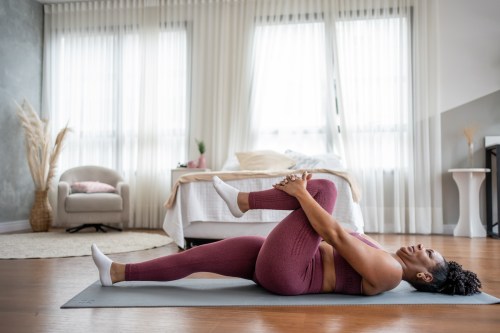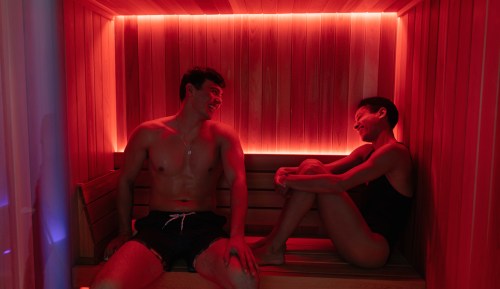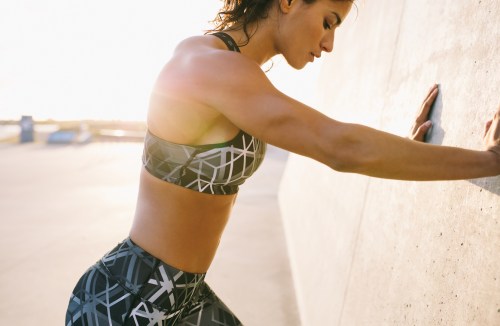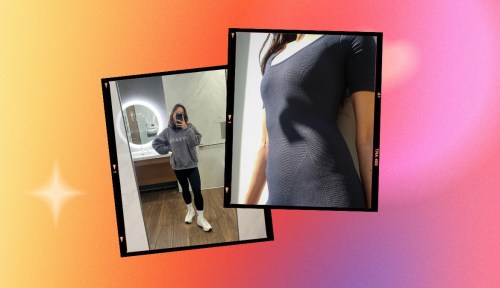Our editors independently select these products. Making a purchase through our links may earn Well+Good a commission
The Benefits of TikTok’s Latest Really Good Idea, ‘Soft Hiking’
A TikTok trend worth celebrating, soft hiking is all about hiking for the sake of spending time in nature, and not achieving a physical goal.
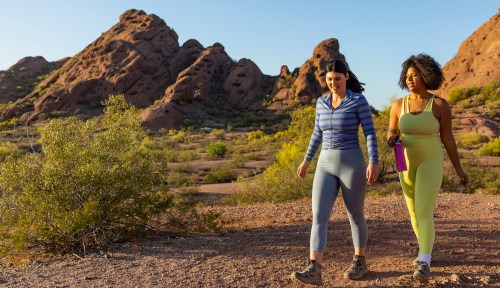
Huffing, puffing, and occasional swearing are the sounds that we often think of soundtracking a hike. But on TikTok, two soothing, lilting British accented-voices are here to introduce you to a worthy new idea: Soft hiking.
Experts in This Article
author of Walk Your Way to Better and founder and CEO of walking app and community 99 Walks
Self-described “soft girls who hike” Emily Thornton and Lucy Hird are two UK-based women chronicling their journeys exploring the nature of Great Britain on their TikTok account with the philosophy that “hiking doesn’t have to be hard.”
The idea of “softness” has taken over TikTok as an aesthetic and POV. It’s about leaning into what feels good, taking time for yourself, and nourishing your body and soul. Thornton and Hird apply the soft idea to hiking, reframing the activity from a type of hyper-athletic, achievement-oriented activity, to one that’s accessible to someone with the motivation “simply to enjoy ourselves,” and so coining the term “soft hiking.”
“Soft hiking is about the pure joy of spending time in nature and moving your body,” the soft girls who hike say in an explainer video. “It’s important to take breaks, eat, and actually take in your surroundings. Make some time to go off trail and be present in the moment. There’s no need to rush.”
The soft hike is akin to the hot girl walk and the exploding popularity of walking in general as a form of movement that’s not about burning a certain amount of calories or achieving any particular aesthetic goals.
“I think it’s extraordinary,” says walking expert Joyce Shulman, the co-founder and CEO of the app 99 Walks and author of Walk Your Way to Better, 99 Walks that Will Change Your Life. “What happened during the pandemic and post-pandemic is that people are really recognizing what I call the transformative power of an intentional walking practice.”
Shulman says soft hiking has all the benefits, and then some, of that intentional walking practice. Frankly, there are too many benefits of walking to list, but some highlights include promoting longevity, bone strength, cardiovascular and brain health, boosting creativity, and alleviating symptoms of depression. Walking promotes “feel good” hormones like serotonin, while lowering cortisol.
“A lot of the mental and emotional benefits, I believe, come from when we step away from our computers, our phones, our obligations, and give ourselves the opportunity to really clear our minds,” Shulman says.
Which is exactly what soft hiking does. It’s not about pushing yourself or achieving something. Maybe you’re even somewhere without cellphone service. The purpose is to appreciate your surroundings and move your body.
You can do that anywhere, whether it’s a mountain range or your own neighborhood. But being in nature has the scientifically-proven benefits of reducing stress. Soft hiking is also a form of taking “awe walks,” which have been shown to boost happiness and feelings of wellbeing.
“In order to experience an awe walk, you have to be willing to slow down enough to take it all in,” Shulman says. Taking your time just happens to be one of the tenets of soft hiking.
It might not appeal to everyone at first, especially when hiking has a rap as something difficult that’s only accessible to the hyper-fit people who can scale mountains, or privileged groups with more ready access to nature and hiking equipment. But soft hiking expands the idea of who a hiker is, so that more people can experience the activity.
“I’ve always thought that if you see yourself as a hiker, as someone who hikes, it just kind of opens up all of these opportunities to take your walk off road,” Shulman says. “Once you embrace that identity, think about all the places you can go.”
Sign Up for Our Daily Newsletter
Get all the latest in wellness, trends, food, fitness, beauty, and more delivered right to your inbox.
Got it, you've been added to our email list.
